
The Wonders of Mujib Nature Reserve
Mujib Nature Reserve is a hidden gem in the heart of Jordan. Known for its stunning canyons, rugged mountains, and diverse wildlife, this nature reserve offers an unforgettable experience for nature lovers and adventure seekers alike. The reserve spans over 212 square kilometers and boasts some of the most dramatic landscapes in the region. From the steep cliffs overlooking the Dead Sea to the lush valleys, Mujib Nature Reserve is a paradise for hikers and photographers. One of the main attractions in the reserve is the Mujib River, which flows year-round and creates a series of waterfalls and pools. The Siq Trail is a popular hiking route that allows visitors to trek through narrow gorges, wade through water, and even swim in crystal-clear pools. For those seeking a more challenging adventure, the Malaqi Trail offers a thrilling hike that includes climbing and abseiling down waterfalls. Mujib Nature Reserve is also home to a rich variety of flora and fauna. The reserve is part of the Jordan Rift Valley, which is a globally recognized biodiversity hotspot. Visitors can spot rare species of plants, birds, and even the elusive Nubian ibex. Whether you're an avid bird watcher or simply looking to escape into nature, Mujib Nature Reserve promises a serene and captivating experience.
Local tips in Mujib Nature Reserve
- Visit between April and October when the weather is most favorable for hiking.
- Wear sturdy, waterproof shoes for the trails, as you will be wading through water.
- Hire a local guide for safety and to enhance your experience with local knowledge.
- Bring plenty of water and snacks, as there are limited facilities within the reserve.
- Check the weather forecast before your visit, as heavy rains can make some trails dangerous.
The Wonders of Mujib Nature Reserve
Mujib Nature Reserve is a hidden gem in the heart of Jordan. Known for its stunning canyons, rugged mountains, and diverse wildlife, this nature reserve offers an unforgettable experience for nature lovers and adventure seekers alike. The reserve spans over 212 square kilometers and boasts some of the most dramatic landscapes in the region. From the steep cliffs overlooking the Dead Sea to the lush valleys, Mujib Nature Reserve is a paradise for hikers and photographers. One of the main attractions in the reserve is the Mujib River, which flows year-round and creates a series of waterfalls and pools. The Siq Trail is a popular hiking route that allows visitors to trek through narrow gorges, wade through water, and even swim in crystal-clear pools. For those seeking a more challenging adventure, the Malaqi Trail offers a thrilling hike that includes climbing and abseiling down waterfalls. Mujib Nature Reserve is also home to a rich variety of flora and fauna. The reserve is part of the Jordan Rift Valley, which is a globally recognized biodiversity hotspot. Visitors can spot rare species of plants, birds, and even the elusive Nubian ibex. Whether you're an avid bird watcher or simply looking to escape into nature, Mujib Nature Reserve promises a serene and captivating experience.
When is the best time to go to Mujib Nature Reserve?
Iconic landmarks you can’t miss
Wadi Rum Protected Area
Discover the stunning natural beauty of Wadi Rum Protected Area, a UNESCO World Heritage site in Jordan, filled with adventure and breathtaking landscapes.
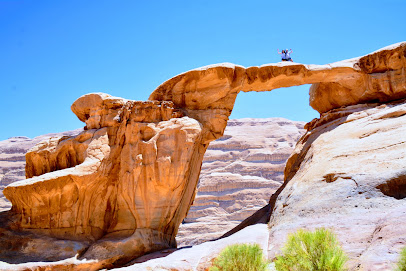
Ma'in Hot Springs
Discover the healing serenity of Ma'in Hot Springs, where nature's warmth meets breathtaking landscapes in Jordan's stunning heart.
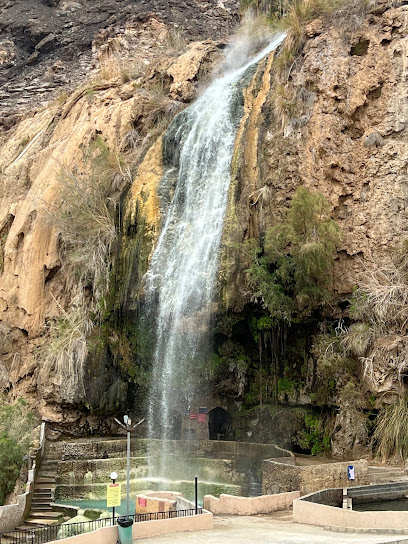
محمية غابات عجلون
Discover the serene beauty and rich biodiversity of Ajloun Forest Reserve, a national park in northern Jordan, perfect for outdoor adventures and nature exploration.
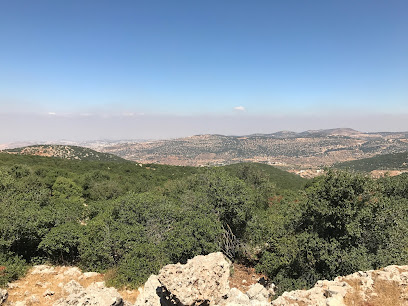
Yarmouk Nature Reserve
Explore the breathtaking beauty of Yarmouk Nature Reserve, a national park in Jordan renowned for its diverse wildlife and stunning landscapes.
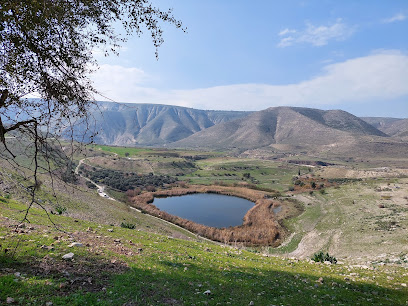
Wadi Mujib
Discover Wadi Mujib, Jordan's breathtaking canyon, where adventure and nature collide in an unforgettable experience amidst stunning landscapes.
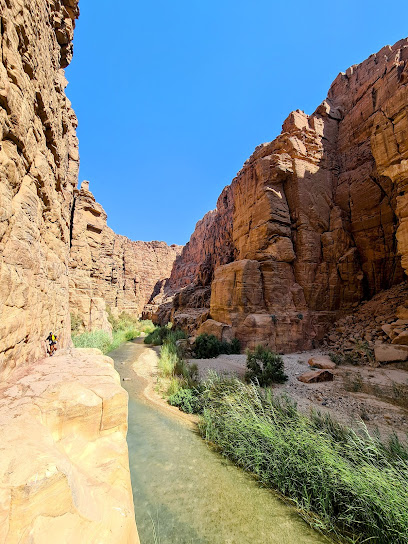
Al-Siq
Explore Al-Siq, the majestic gateway to Petra, where ancient history meets stunning natural beauty in Jordan's iconic archaeological site.
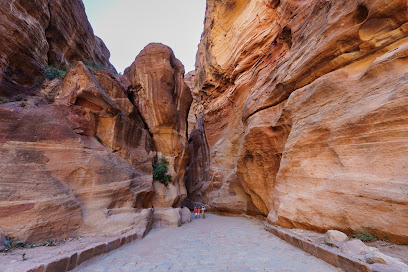
Azraq Wetlands Reserve
Discover the enchanting Azraq Wetlands Reserve, a national park rich in biodiversity and a haven for nature lovers and birdwatchers in Jordan.
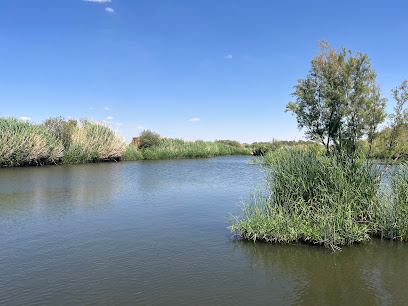
Dana Biosphere Reserve
Experience the breathtaking landscapes and rich biodiversity of the Dana Biosphere Reserve, Jordan's largest national park and a haven for nature lovers.
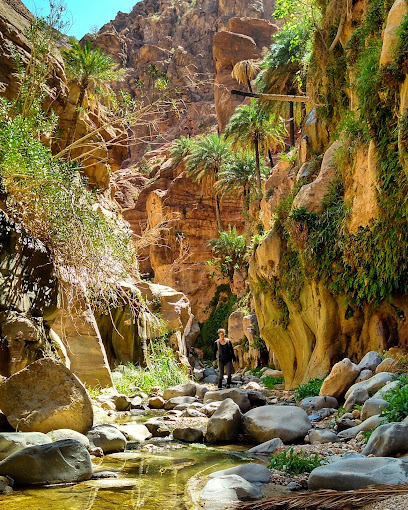
Dibbeen Forest Reserve
Explore Dibbeen Forest Reserve: A serene national reserve in Jordan with diverse wildlife, stunning landscapes, and hiking adventures for nature lovers.
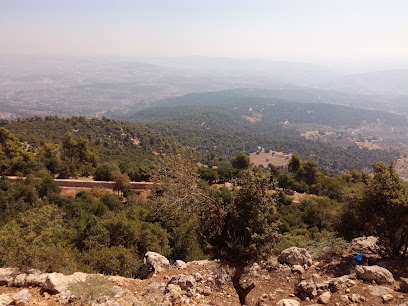
Lawrence’s Spring
Explore the serene beauty and historical significance of Lawrence's Spring in Wadi Rum, an oasis amidst the stunning desert landscapes.
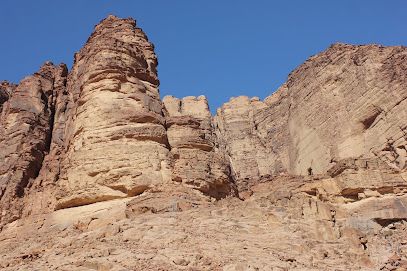
Wadi Bin Hammad
Explore Wadi Bin Hammad, a breathtaking hiking area in Jordan, where stunning natural beauty meets rich cultural heritage.
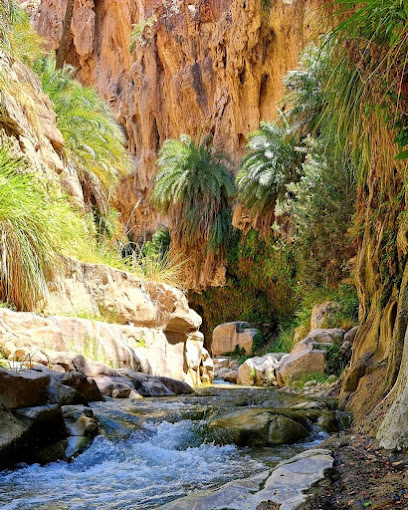
Temple of Zeus
Discover the awe-inspiring Temple of Zeus in Jerash, a remarkable historical landmark showcasing the grandeur of Roman architecture in Jordan.
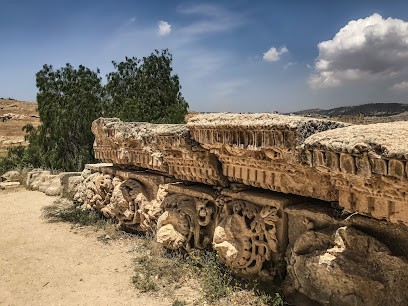
Shaumari Wildlife Reserve
Explore the breathtaking landscapes and rich wildlife of Shaumari Wildlife Reserve, a national park dedicated to conservation and adventure in Jordan.
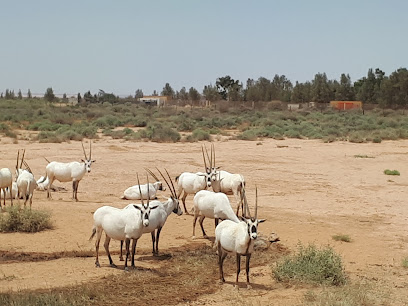
Fortress of Machaerus
Explore the historical significance and breathtaking views of the Fortress of Machaerus, a must-visit site in Jordan's rich landscape.
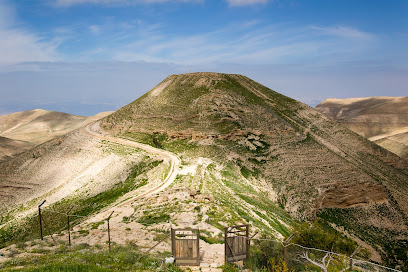
Museum at the Lowest Place on Earth
Explore the Heritage of Jordan at the Museum at the Lowest Place on Earth, a Unique Cultural Destination for History Enthusiasts.
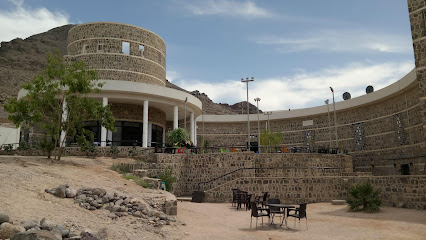
Unmissable attractions to see
The Archaeological Site of Jerash
Discover the ancient marvels of Jerash, where Roman history meets breathtaking architecture in one of the best-preserved archaeological sites in the world.
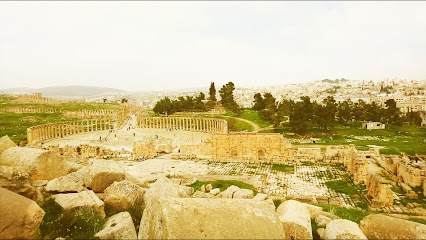
Wadi Mujib
Explore the breathtaking trails and unique water adventures of Wadi Mujib, a natural wonder in Jordan's stunning landscape.
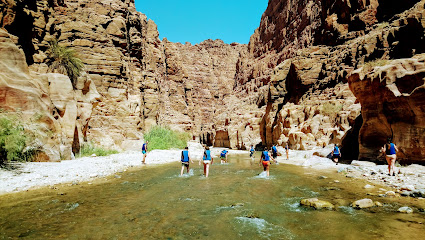
Madaba Visitors Center
Experience the rich tapestry of Madaba's history and culture at the Madaba Visitors Center, your gateway to Jordan's mosaic city.
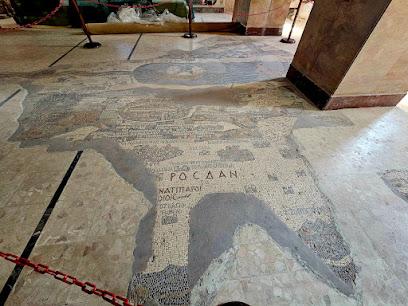
La Cueva Aqua Park
Experience the ultimate water adventure at La Cueva Aqua Park, where family fun meets the stunning scenery of the Dead Sea.
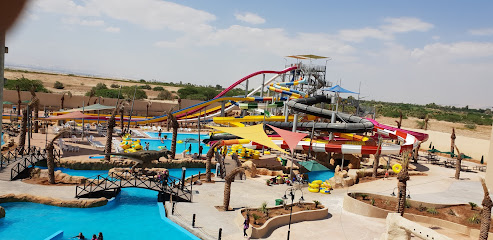
Apostles Church كنيسة الرسل
Explore the Apostles Church in Madaba, a historical jewel filled with exquisite mosaics and rich cultural heritage.
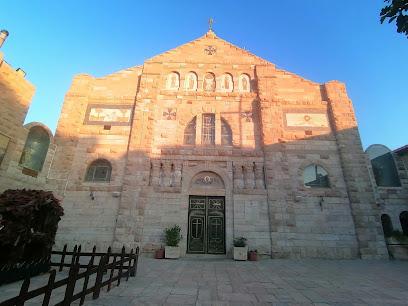
Temple of Zeus
Explore the Temple of Zeus in Jerash, a stunning example of Roman architecture and a key historical landmark in Jordan's ancient heritage.
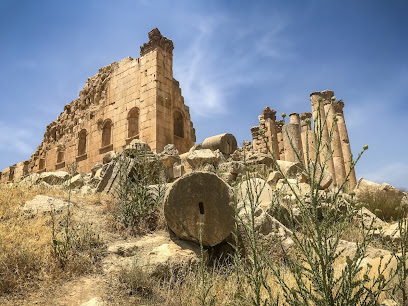
As-Salt Archaeological Museum
Explore the rich archaeological heritage of Jordan at As-Salt Archaeological Museum, where history comes alive through ancient artifacts.
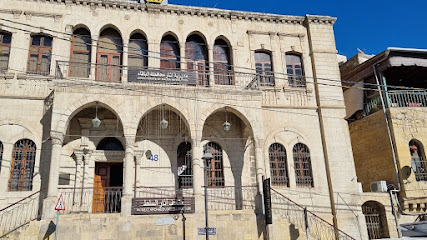
Mujib Chalets - Mujib Biosphere Reserve
Discover the tranquility and adventure of Mujib Chalets in the breathtaking Mujib Biosphere Reserve, Jordan's eco-tourism gem.

הבית השרוף - The Burnt House
Explore Jerusalem's past at The Burnt House Museum, a captivating glimpse into the history of the Second Temple period.
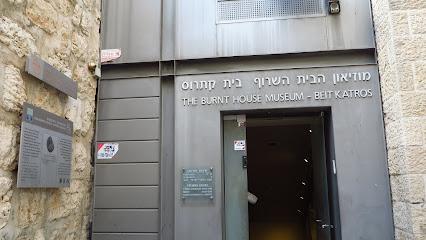
Wadi Rum Desert
Experience the breathtaking beauty and rich culture of Wadi Rum Desert, Jordan's iconic national reserve, perfect for adventure and serenity.
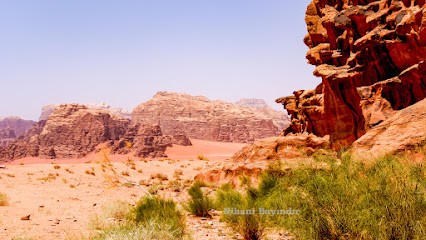
Burdah Rock Bridge
Explore Burdah Rock Bridge in Wadi Rum, a stunning natural arch offering breathtaking views and a glimpse into Jordan's rich history.
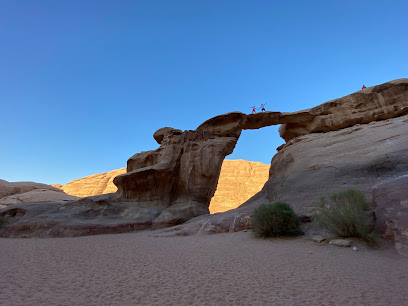
Deir Al-Sultan
Explore Deir Al-Sultan in Jerusalem, a sacred site rich in history and cultural significance, offering a peaceful retreat amidst the bustling city.
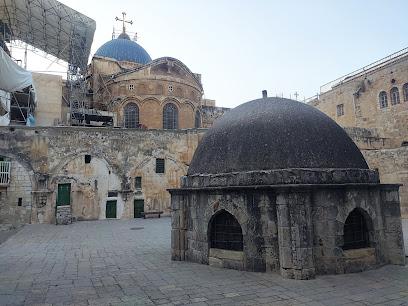
Wadi Dahek The White Desert
Discover the breathtaking beauty of Wadi Dahek, the White Desert, where unique geological formations meet stunning white landscapes in Jordan.
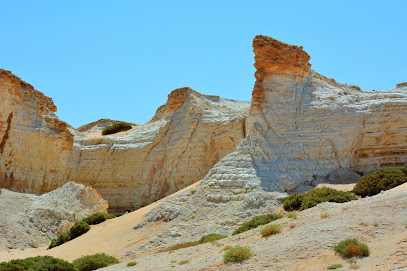
Ajloun Forest Reserve Zipline العبّارة الهوائية في غابات عجلون
Discover the thrill of soaring through the treetops at Ajloun Forest Reserve Zipline, a top adventure destination in Jordan.
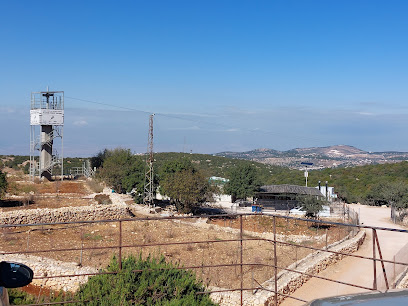
Latin Patriarchate of Jerusalem
Explore the Latin Patriarchate of Jerusalem, a historical and spiritual cornerstone of Christian heritage in the heart of the ancient city.
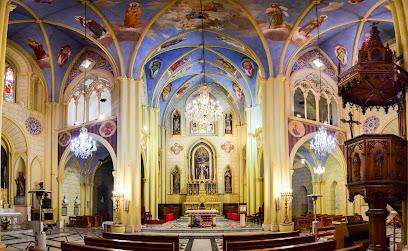
Essential places to dine
Al Wadi Restaurant
Experience authentic Jordanian cuisine at Al Wadi Restaurant in Wadi Musa—where tradition meets taste in every dish.
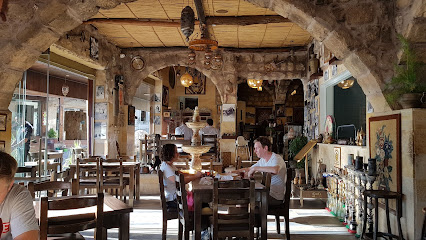
Wild Jordan Center
Experience authentic Jordanian cuisine at Wild Jordan Center while enjoying breathtaking views and supporting local artisans.
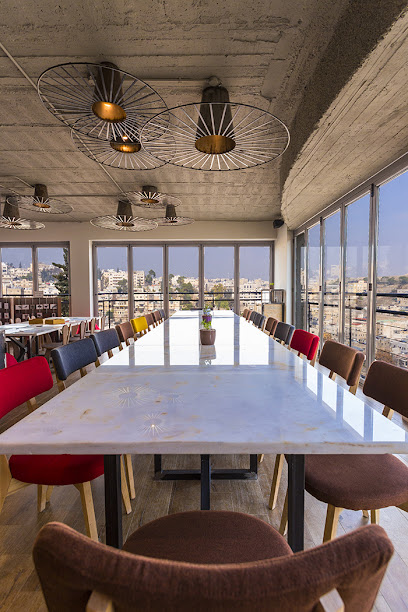
Buffalo Wings & Rings - Dead Sea
Savor delicious American cuisine and chicken wings at Buffalo Wings & Rings by the stunning Dead Sea.
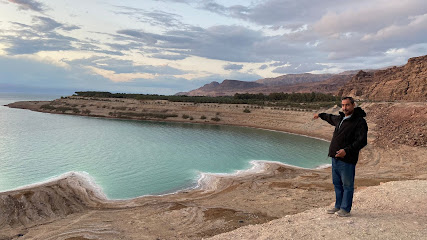
Reem Beladi Restaurant
Experience authentic Jordanian cuisine at Reem Beladi Restaurant in Wadi Musa - where tradition meets flavor in every bite.
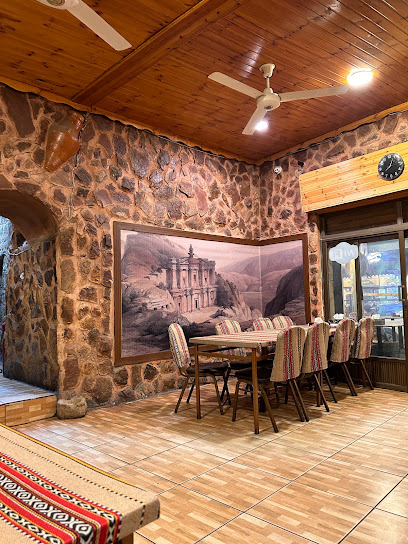
Beit Al-Barakah restaurant
Experience authentic Jordanian cuisine at Beit Al-Barakah restaurant in Wadi Musa - where tradition meets flavor in every dish.
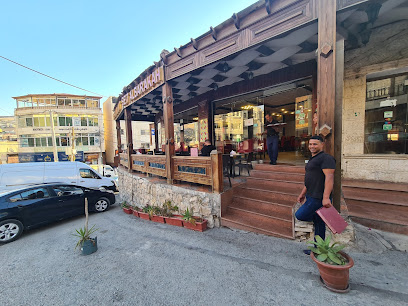
Zawaya restaurant
Experience authentic Jordanian cuisine at Zawaya Restaurant in Wadi Musa – where every dish tells a story.
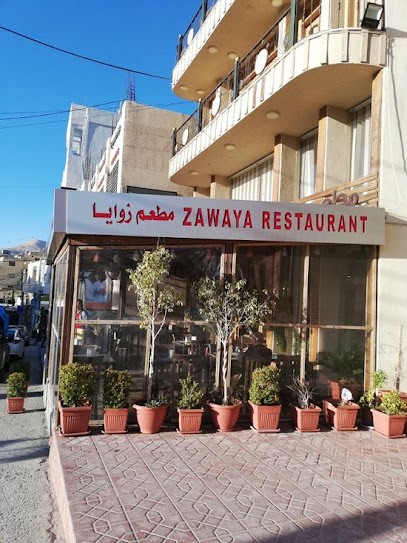
Sajiat Al janoob
Experience authentic Jordanian flavors at Sajiat Al Janoob in Wadi Musa – where every meal tells a story.
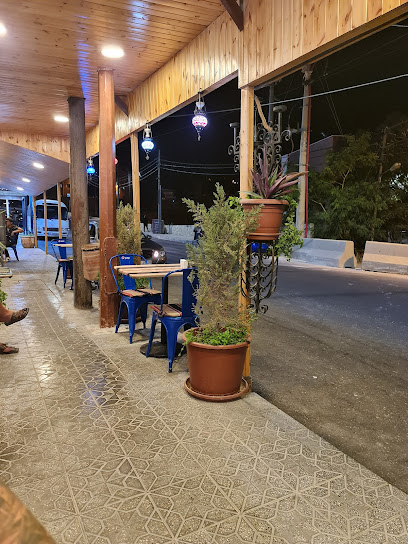
Umm Qais Rest House
Discover authentic Jordanian cuisine with breathtaking views at Umm Qais Rest House - where every meal tells a story.
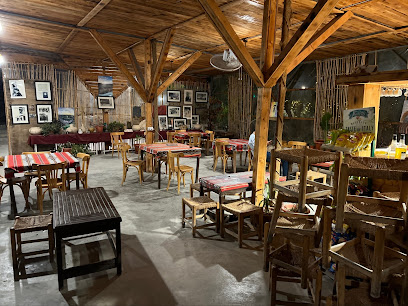
Time Out
Experience authentic Jordanian cuisine in Wadi Musa's beloved Time Out Restaurant, your culinary haven near Petra.
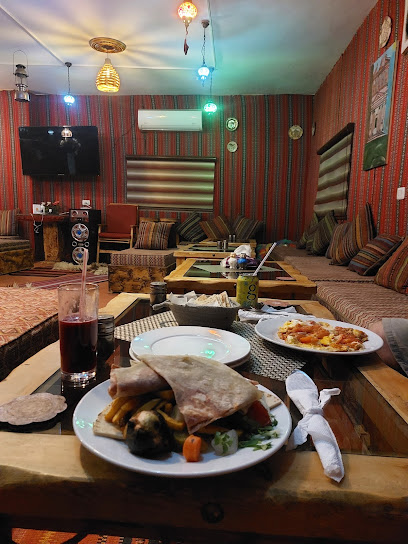
Gaadet Jeeran
Discover the culinary delights at Gaadet Jeeran in Aqaba – where traditional Jordanian flavors meet Italian cuisine in a welcoming atmosphere.
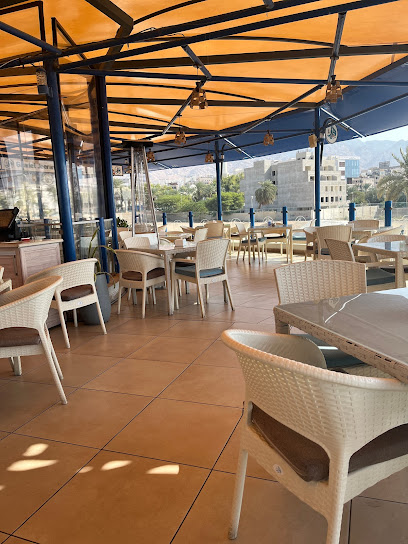
Al-Arabi Restaurant
Experience authentic Jordanian cuisine at Al-Arabi Restaurant in Wadi Musa—where every dish tells a story.
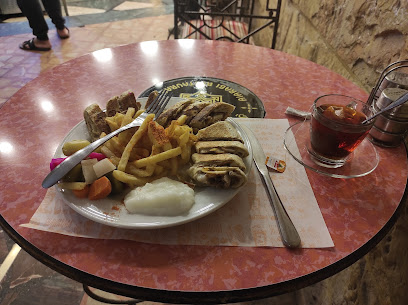
Carob House بيت الخروب
Discover the essence of Jordanian flavors at Carob House in Madaba - where tradition meets taste in every dish.
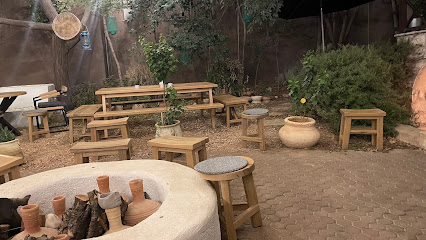
Jordan heart restaurant Petra
Experience authentic Jordanian cuisine at its finest in Wadi Musa's beloved dining spot near Petra.
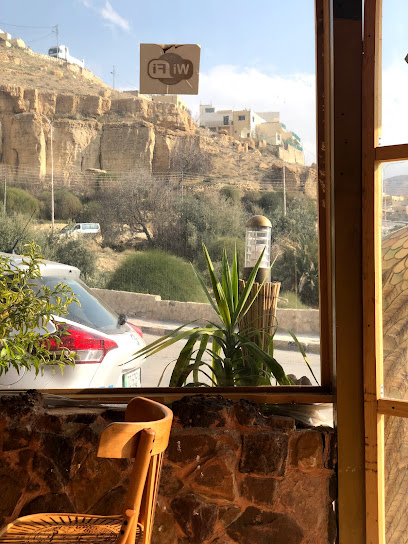
The Basin Restaurant
Experience authentic Jordanian cuisine with breathtaking views at The Basin Restaurant in Petra.
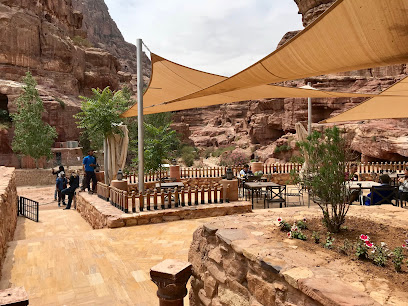
Petra Night Restaurant
Experience authentic Jordanian cuisine at Petra Night Restaurant in Wadi Musa, just minutes from the iconic ruins of Petra.
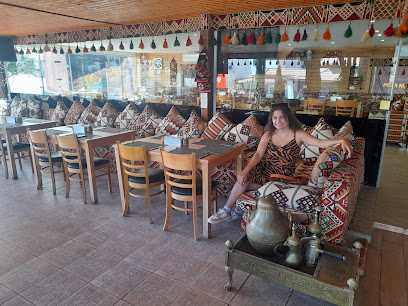
Markets, malls and hidden boutiques
City Mall
Explore City Mall in Amman: A shopping paradise with local flavors, entertainment, and a modern atmosphere for every traveler.
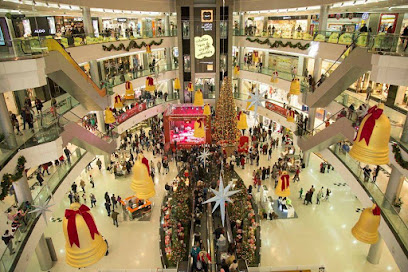
Abdali Mall
Discover Abdali Mall in Amman, Jordan: A premier shopping destination blending modern retail, dining, and entertainment for an unforgettable experience.
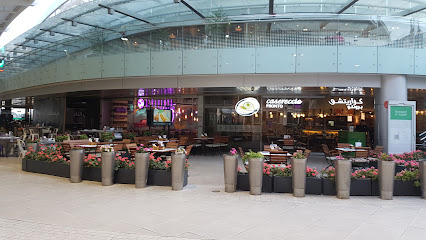
Mecca Mall
Experience shopping, dining, and entertainment at Mecca Mall, one of Amman's top destinations for tourists and locals alike.

Taj Lifestyle Center
Discover the dynamic Taj Lifestyle Center in Amman, where shopping, dining, and entertainment come together in a vibrant atmosphere.
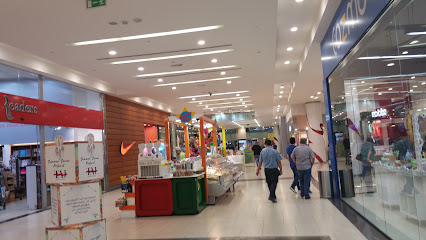
Wadi Rum Protected Area
Explore Wadi Rum Protected Area, a stunning desert landscape in Jordan, rich in natural beauty and Bedouin culture, perfect for adventurous travelers.
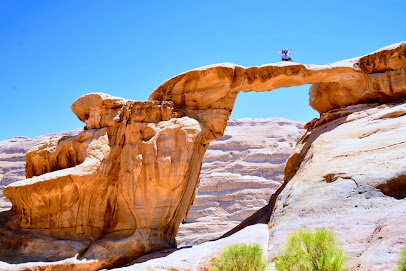
Ma'in Hot Springs
Discover the rejuvenating experience of Ma'in Hot Springs, where nature meets relaxation in the heart of Jordan's stunning landscapes.
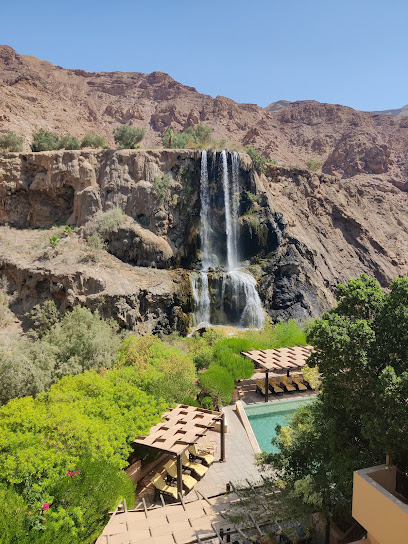
محمية غابات عجلون
Explore the lush landscapes and rich biodiversity of Ajloun Forest Reserve, a national park in Jordan perfect for nature lovers and adventurers alike.
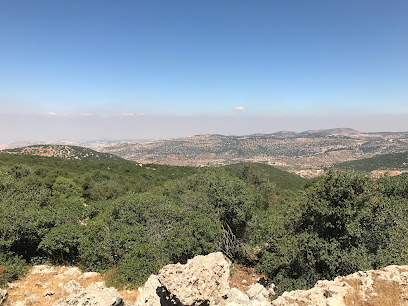
Wadi Mujib
Discover the breathtaking beauty and thrilling adventures of Wadi Mujib, Jordan's premier hiking destination, where nature meets excitement.
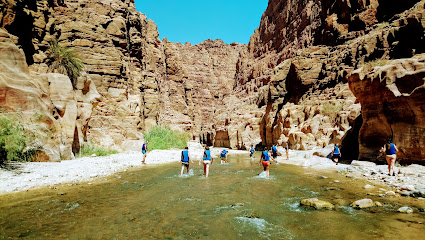
Azraq Wetlands Reserve
Discover the stunning Azraq Wetlands Reserve, a haven for wildlife and nature lovers in Jordan's unique ecosystem, offering peaceful trails and vibrant birdwatching.
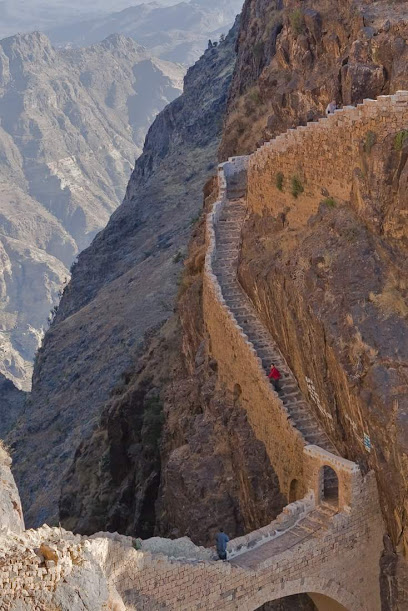
Dana Biosphere Reserve
Discover the breathtaking beauty and rich biodiversity of Dana Biosphere Reserve, a treasure trove of nature and culture in Jordan.
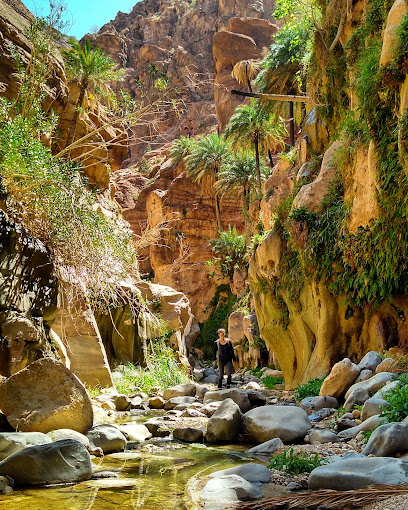
Wadi Bin Hammad
Discover the breathtaking landscapes and serene waterfalls of Wadi Bin Hammad, a premier hiking destination in Jordan that captivates nature lovers.
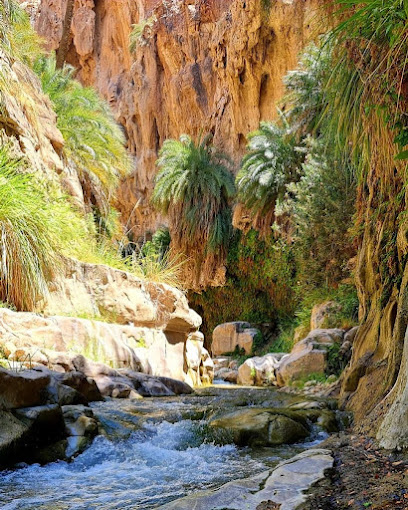
Shaumari Wildlife Reserve
Explore the stunning landscapes and rich biodiversity of Shaumari Wildlife Reserve, a natural sanctuary in the heart of Jordan.
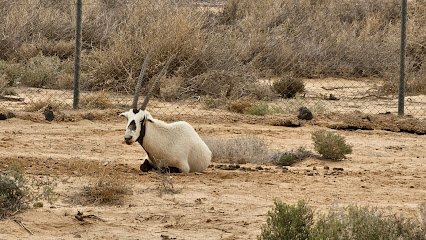
Museum at the Lowest Place on Earth
Explore the rich history and captivating exhibits at the Museum at the Lowest Place on Earth, a unique heritage site near the Dead Sea.
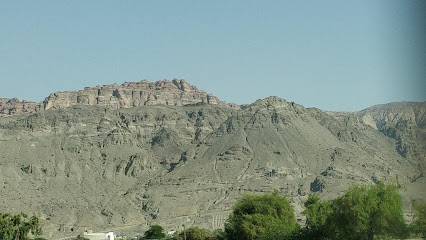
Mujib Chalets - Mujib Biosphere Reserve
Experience the beauty of nature and comfort at Mujib Chalets, your gateway to exploration in the stunning Mujib Biosphere Reserve.

Jordan Craft Center
Discover the vibrant artistry of Jordan at the Jordan Craft Center - a hub of handicrafts, culture, and unique souvenirs.
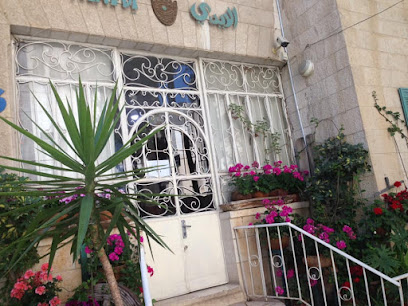
Essential bars & hidden hideouts
Mövenpick Dead Sea Jordan
Experience unparalleled luxury and relaxation at Mövenpick Dead Sea Jordan, where stunning views and world-class amenities await.
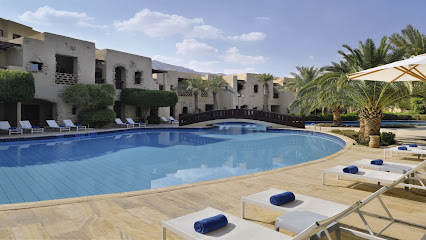
Crowne Plaza Jordan - Dead Sea Resort & Spa, an IHG Hotel
Experience the ultimate in relaxation and luxury at Crowne Plaza Jordan - Dead Sea Resort & Spa, your gateway to the wonders of the Dead Sea.
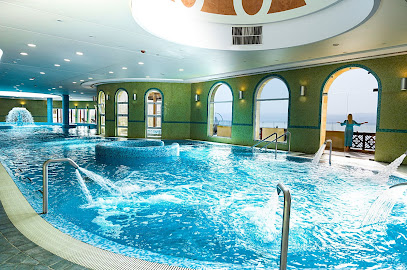
Hilton Dead Sea Resort & Spa
Experience unparalleled luxury and relaxation at Hilton Dead Sea Resort & Spa, where stunning views and exceptional amenities await.
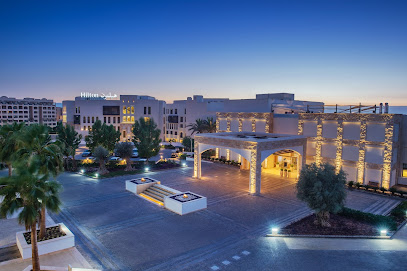
Ramada Resort by Wyndham Dead Sea
Experience luxury and relaxation at the Ramada Resort by Wyndham Dead Sea, your gateway to the therapeutic wonders of the Dead Sea.

Buffalo Wings & Rings - Dead Sea
Enjoy American comfort food at Buffalo Wings & Rings by the Dead Sea, featuring succulent chicken wings and a vibrant sports bar atmosphere.
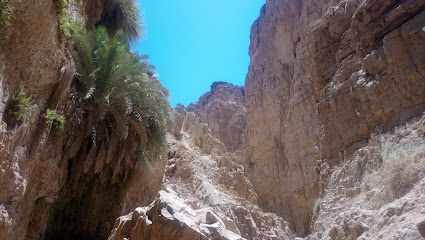
Cantaloupe Gastro Pub
Discover the vibrant flavors and stunning views at Cantaloupe Gastro Pub, a premier gastropub in Amman’s lively Rainbow Street.
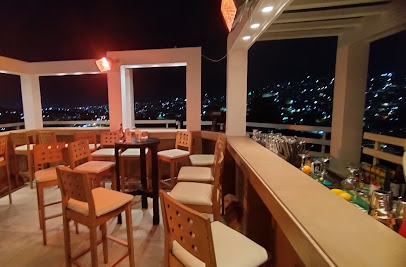
Time Out
Experience authentic Jordanian flavors and warm hospitality at Time Out Cafe and Restaurant in Wadi Musa, a culinary haven for travelers.
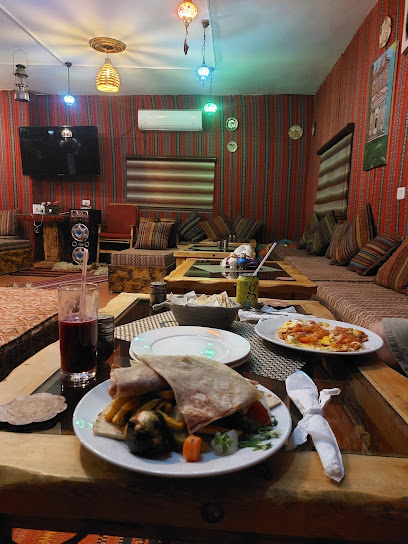
District Urban Rooftop
Discover the vibrant nightlife of Amman at District Urban Rooftop, offering stunning city views and an eclectic menu in a chic atmosphere.
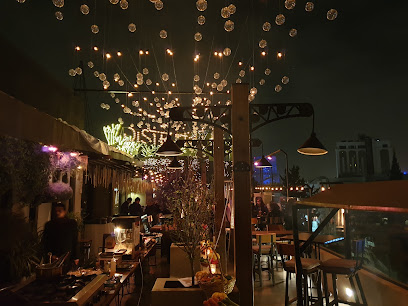
Beit Sweimeh بيت سويمة
Discover the authentic taste of Jordan at Beit Sweimeh, an enchanting restaurant by the Dead Sea offering flavorful dishes and stunning views.
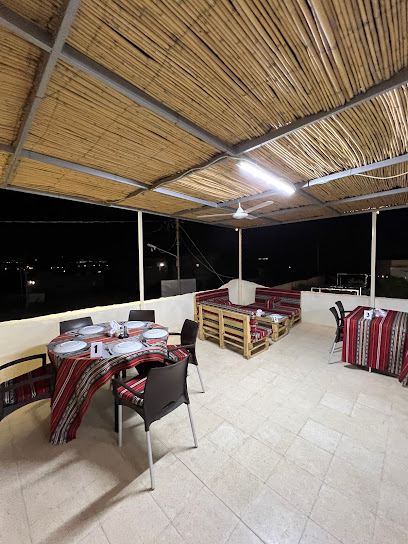
The Cave Bar
Experience the enchanting atmosphere of The Cave Bar in Wadi Musa, where unique natural surroundings meet vibrant nightlife and exquisite beverages.
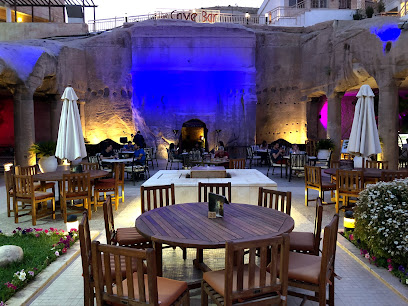
Kegs House of Ale
Discover Kegs House of Ale, Amman's lively pub offering a rich selection of craft beers and delectable dishes in a cozy atmosphere.
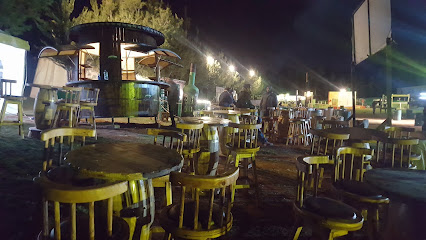
Mujib Chalets - Mujib Biosphere Reserve
Discover the tranquility of Mujib Chalets, where nature meets comfort in the stunning Mujib Biosphere Reserve.

JR The Wine Experience
Indulge in a sophisticated dining experience at JR The Wine Experience, where exquisite wines meet delightful culinary creations in the heart of Amman.
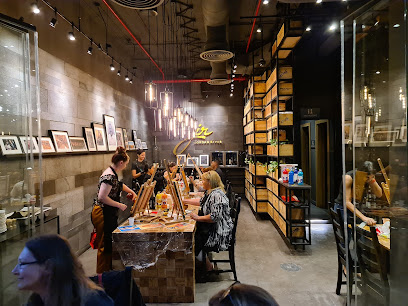
NASIM ROOFTOP LOUNGE
Discover the exquisite culinary delights and breathtaking views at Nasim Rooftop Lounge in Amman, a must-visit dining destination for every traveler.
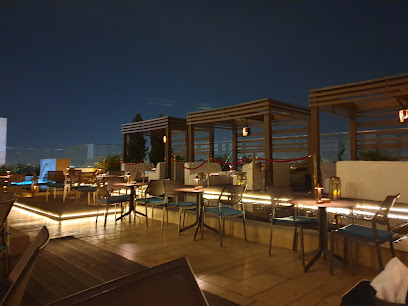
Local Phrases about Mujib Nature Reserve
-
- HelloMarhaba
[mar-ha-ba] - GoodbyeMa'a as-salama
[ma-a as-sa-la-ma] - YesNa'am
[na-am] - NoLa
[la] - Please/You're welcomeMin fadlik
[min fad-lik] - Thank youShukran
[shuk-ran] - Excuse me/SorryAasif
[aa-sif] - How are you?Kif halak?
[kif ha-lak] - Fine. And you?Bikhair. Wa ant?
[bi-khair. wa ant] - Do you speak English?Tatakallam al-ingliziya?
[ta-ta-kal-lam al-ing-li-zi-ya] - I don't understandAna la afham
[a-na la af-ham]
- HelloMarhaba
-
- I'd like to see the menu, pleaseUriid an ara al-qayima, min fadlik
[u-riid an a-ra al-qa-yi-ma, min fad-lik] - I don't eat meatAna la akkaul lahma
[a-na la ak-kau-l la-hma] - Cheers!Bikha ir
[bi-kha ir] - I would like to pay, pleaseUriid an adfa, min fadlik
[u-riid an ad-fa, min fad-lik]
- I'd like to see the menu, pleaseUriid an ara al-qayima, min fadlik
-
- Help!Musaidi!
[mu-sai-di] - Go away!Irjaa!
[ir-jaa] - Call the Police!Ittasal bil-shurtah!
[it-ta-sal bil-shur-ta] - Call a doctor!Ittasal bil-Tabib!
[it-ta-sal bil-ta-bib] - I'm lostAnaa Dhaayaa'
[a-naa dhaa-ya] - I'm illAnaa mareed
[a-naa ma-reed]
- Help!Musaidi!
-
- I'd like to buy...Uriid an ashtar...
[u-riid an ash-tar] - I'm just lookingAna faqat atabathath
[a-na fa-qat a-ta-ba-thath] - How much is it?Kam hadha?
[kam ha-dha] - That's too expensiveHadha ghali jiddan
[ha-dha gha-li jid-dan] - Can you lower the price?Hal tastatiu tanzil al-siara?
[hal tas-ta-ti-u tan-zil al-si-a-ra]
- I'd like to buy...Uriid an ashtar...
-
- What time is it?Kam as-saa'a?
[kam as-sa-a-a] - It's one o'clockAl-wahida
[al-wa-hi-da] - Half past (10)Nisf ashar
[nisf a-shar] - MorningSabaah
[sa-baah] - AfternoonDhuhr
[dhuh-r] - EveningMasaa'
[ma-saa] - YesterdayAmse
[am-se] - TodayLyawm
[lyawm] - TomorrowGhadan
[gha-dan] - 1Wahid
[wa-hid] - 2Ithnaan
[ith-naan] - 3Thalatha
[tha-la-tha] - 4Arba'a
[ar-ba-a] - 5Khamsa
[kham-sa] - 6Sitta
[sit-ta] - 7Saba'a
[sa-ba-a] - 8Thamania
[tha-ma-ni-a] - 9Tis'a
[ti-sa-a] - 10Ashara
[a-sha-ra]
- What time is it?Kam as-saa'a?
-
- Where's a/the...?Wayn huwa al...?
[wayn hu-wa al] - What's the address?Ma huwa al-`anwan?
[ma hu-wa al-an-wan] - Can you show me (on the map)?Hal tastaTi`u an turiyani (ala al-kharita)?
[hal tas-ta-ti-u an tu-ri-ya-ni ala al-kha-ri-ta] - When's the next (bus)?Mata huwa at-taariikh al-qadiim?
[ma-ta hu-wa at-ta-riikh al-qa-diim] - A ticket (to ....)Taqiit (ila ....)
[ta-qiit ila]
- Where's a/the...?Wayn huwa al...?
History of Mujib Nature Reserve
-
Mujib Nature Reserve, situated along the eastern shore of the Dead Sea, was historically a crucial part of ancient trade routes. The King's Highway, one of the oldest continuously used communication routes in the world, passed near this area. Caravans laden with spices, incense, and precious goods would traverse this rugged terrain, linking the Arabian Peninsula with the Levant and beyond.
-
The Mujib Gorge, known as the Arnon Gorge in historical texts, is mentioned several times in the Bible. It served as a boundary between the Moabites and the Amorites. The Book of Numbers and the Book of Deuteronomy reference the significance of this gorge, indicating its relevance in the territorial and cultural delineations of ancient tribes.
-
During the Roman Empire, the region around Mujib was heavily fortified. The Romans built a series of forts and watchtowers to protect their territories and trade routes from nomadic tribes. Remnants of these Roman fortifications can still be found, offering a glimpse into the strategic importance of this area in antiquity.
-
In the Byzantine period, the Mujib area became a retreat for Christian monks seeking solitude and spiritual reflection. The harsh landscape provided an ideal setting for monastic life. Several monasteries and hermitages were established, leaving behind ruins that testify to the region's religious significance.
-
Under Ottoman rule, the Mujib region saw renewed attention due to its strategic location. The Ottomans constructed roads and improved infrastructure, facilitating movement and trade. The remnants of Ottoman-era roadways and bridges can be found, marking a period of modernization in the area's long history.
-
In the late 20th century, the Jordanian government, with support from international conservation organizations, established Mujib Nature Reserve to protect its unique biodiversity and historical heritage. This marked a turning point in the preservation of both natural and cultural resources, ensuring that the legacy of Mujib continues to be appreciated by future generations.
Mujib Nature Reserve Essentials
-
Mujib Nature Reserve is located in the central part of Jordan, near the eastern shore of the Dead Sea. The nearest major airport is Queen Alia International Airport in Amman, approximately 90 kilometers away. From Amman, you can rent a car, hire a private taxi, or use public transportation such as buses and minibuses (serviced by companies like JETT) to reach the reserve. The journey typically takes around 1.5 to 2 hours by road.
-
Within Mujib Nature Reserve, the best way to explore is on foot, especially if you are venturing into the trails and canyons. For areas outside the reserve, renting a car provides the most flexibility, though local taxis are also available. Be sure to arrange for transportation in advance if you plan to leave the reserve, as public transport options can be limited.
-
The official currency in Jordan is the Jordanian Dinar (JOD). Credit cards are accepted at the larger hotels and some restaurants, but it's advisable to carry cash, especially for smaller establishments and entrance fees to the reserve. ATMs are available in larger towns and cities, but not within the reserve itself, so plan accordingly.
-
Mujib Nature Reserve is generally safe for tourists. However, it is always advisable to take standard precautions such as keeping an eye on your belongings and avoiding isolated areas after dark. Jordan as a whole is considered a safe destination, but exercise caution in crowded areas and stay informed about local news.
-
In case of an emergency, dial 911 for immediate assistance. The nearest medical facilities are located in nearby towns such as Madaba or Karak. It is highly recommended to have travel insurance that covers medical emergencies, including evacuation if necessary. For minor health issues, carry a basic first aid kit and any necessary medications.
-
Fashion: Do dress modestly, especially when visiting religious sites. Avoid wearing revealing clothing. Religion: Do respect local customs and traditions. During prayer times, be respectful and avoid loud activities. Public Transport: Do be respectful and courteous to drivers and fellow passengers. Don’t eat or drink on public transport. Greetings: Do greet people with a smile and a handshake. A simple 'Salam' (peace) is a common greeting. Eating & Drinking: Do try local delicacies and accept food offerings graciously. Don’t refuse hospitality, as it is considered impolite.
-
To experience Mujib Nature Reserve like a local, consider joining guided tours that are often led by local Bedouins who can share insights about the area's history and ecology. Visit the Mujib Chalets for an overnight stay to fully immerse yourself in the natural beauty of the reserve. Early mornings and late afternoons are the best times for wildlife spotting and enjoying the cooler temperatures.
Trending Landmarks in Mujib Nature Reserve
-
Wadi Rum Protected Area
-
Ma'in Hot Springs
-
محمية غابات عجلون
-
Yarmouk Nature Reserve
-
Wadi Mujib
-
Al-Siq
-
Azraq Wetlands Reserve
-
Dana Biosphere Reserve
-
Dibbeen Forest Reserve
-
Lawrence’s Spring
-
Wadi Bin Hammad
-
Temple of Zeus
-
Shaumari Wildlife Reserve
-
Fortress of Machaerus
-
Museum at the Lowest Place on Earth
Nearby Cities to Mujib Nature Reserve
-
Things To Do in Ein Gedi
-
Things To Do in Masada
-
Things To Do in Kerak
-
Things To Do in Madaba
-
Things To Do in Bethlehem
-
Things To Do in Jerusalem
-
Things To Do in Amman
-
Things To Do in Salt
-
Things To Do in Tafilah
-
Things To Do in Modi'in
-
Things To Do in Beersheba
-
Things To Do in Dana
-
Things To Do in Jerash
-
Things To Do in Ashdod
-
Things To Do in Holon







